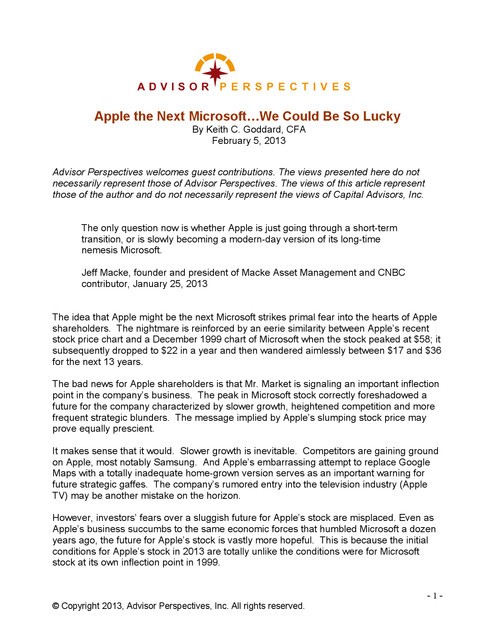Advisor Perspectives
Post on: 16 Март, 2015 No Comment

Beyond Compensation
Meeting tough hiring goals through compensation alone is ultimately an unsustainable strategy, especially when firms are going after highly skilled advisors in the wealth management field.
Noting that relationship managers are far from the mercenaries the compensation headlines would have us believe, the SEI white paper finds that these advisors are finding it difficult to give clients the attention they demand.
According to NorthStars survey, the answer to effective recruitment may lie in how a firm runs its operations. Firms that force advisors to spend most of their time on mundane, repetitive administrative tasks taking away crucial client-facing time are not attractive places to work. Those firms that provide technology to help advisors work more efficiently, on the other hand, have an easier time attracting and retaining staff. With the VIP Forum estimating that 40% of an advisors time is spent on administrative and internal activities, its easy to see how a firms operations and processes may trump compensation in the decision to remain at a firm or jump ship.
An Aite Group technology report last year supports that view. According to Alois Pirker, one of the firms senior analysts, For too long, wealth management firms have thrown far too many tools at their advisors without considering how certain tools fit into the advice process. An integrated front-office environment will increase advisors productivity within a firm, and it will help attract and retain top advisor talent.
In addition to technology, the entire training framework of the wealth management infrastructure has withered away at many institutions. Indeed, it can take years for a wealth manager to master all the skills needed to advise clients and cultivate new relationships. But over the past several years, training budgets have not kept pace with industry growth.
In an On Wall Street article, The War for Talent, Daryl Metzger, executive vice president at Hilliard Lyons, says that because big firms began to cut training programs in early 2000, the industry now faces a shortage of trained advisors. As advisors leave the industry, there far few highly skilled replacements available to fill the gap.
Whats more, the 2007 Global Private Banking/Wealth Management Survey 2007 from PricewaterhouseCoopers suggests that firms are not doing their best to leverage internal talent pipelines. Despite over two-thirds of wealth managers looking at poaching CRMs [client relationship managers] from other banks, the report points out, it is interesting that more than 70% do not monitor competitors moves around training, and 69% do not measure competitors moves around recruitment.
Looking Ahead

Everyone in the financial services industry is trying to steal away top wealth management talent now, said Jane Swan, a senior partner at the executive recruitment firm Korn/Ferry International, in recent comments to Bank Investment Consultant. Companies consider it easier and faster to expand their business by hiring experienced financial advisors who bring their clients with them when they join a firm. But employers should come up with other ways to drive revenue, Swan says. They’re paying through the nose to bring over these advisors.
So what can firms do right now to be more competitive in this challenging market for clients and talent?
Implementing an integrated platform gives firms a competitive advantage in the ongoing war for talent and can stem the negative revenue impact of talent movement. Offering wealth managers better tools frees them from mind-numbing administrative tasks that keep them away from the reason they are in business in the first place: to consult and advise their clients.
Firms that require their wealth managers to work in a rudimentary environment risk losing them at a time when competition for advisors is fierce and talent costs are soaring. Firms that take action to improve their operations, as well as their training programs, will build a culture of support for their wealth managers, setting them up for success.
To improve their systems and work processes, firms may need to consider reallocating resources more effectively to keep their top talent. The end goal, after all, is to enable wealth managers to do what they do best deliver high-quality advice that deepens and solidifies client relationships.














